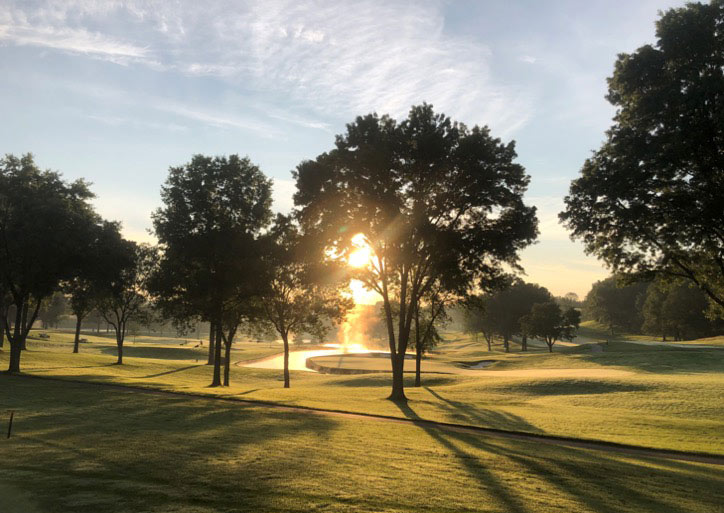
St. Clair Country Club, a private facility with 27 holes of golf, evokes countryside calm just 8 miles from downtown Pittsburgh. Photo courtesy of BASF
Editor’s note: The following article was supplied by BASF. All product claims, research cited and other information is directly from the company.
When it comes to weather and its effect on golf course conditions, the Mid-Atlantic region can be as unforgiving as they come, with drastic temperature swings and unpredictable fluctuations between cool, damp conditions and hot, dry ones. To be a golf course superintendent in such a fickle environment takes patience, calculation and powerful tools to help get the job done. For Eric Materkowski, the golf course superintendent at St. Clair Country Club in the South Hills area of Pittsburgh, such challenges are what he contends with on a daily basis.
“It’s Pittsburgh, so our climate is all over the place,” says Materkowski, a 23-year GCSAA member. “It’s been very wet the last few years, and we’ve had a tremendous amount of rain. It’s a difficult environment for the turf to grow in, but we still have to work to meet the performance expectations of our golfers.”
St. Clair features two golf courses: an 18-hole championship course and a nine-hole course called the Terrace Course. It’s a large amount of acreage, and with at least 25,000 rounds of golf played on it a year, expectations are high for beauty and performance.
Visit St. Clair Country Club and hear more from golf course superintendent Eric Materkowski:
Materkowski and the St. Clair team work hard to try to create the best possible turf-growing environment. “We try to implement good cultural practices, good fertility and fungicide programs. We’ve had a lot of tools that work OK, but we haven’t had great success recently,” Materkowski says.
That is, until the crew got their hands on Maxtima fungicide.
“We went to two of our worst greens, the 8th and 12th, with a long history of chronic anthracnose,” Materkowski says. The St. Clair team sprayed both areas in the heat of the summer in 2019 — in dry, hot conditions — and it didn’t take long to see whether their efforts were successful.
“The Maxtima fungicide worked,” Materkowski says. “The results we were getting in some of these areas that had previously been uncontrollable were obvious.”
Not yet satisfied, Materkowski and his team went a step further. “We went to our nursery green that is a Poa green and sprayed to see what kind of damage we could get. We didn’t see any damage,” Materkowski says. “It was incredible. It shocked me.”
By the end of summer 2019, the St. Clair team was using Maxtima fungicide on all greens and approaches to head into the winter months with the course as healthy as possible.
Maxtima fungicide is a cutting-edge DMI that can safely and affordably be sprayed on any turf, at any temperature (subject, of course, to any label restrictions), anywhere on the course to help ensure disease-free playing conditions year-round.
The results at St. Clair back that up. “If I spray the entire surface of our Championship Course with any product, I’m a believer,” Materkowski says.
Learn more about Maxtima fungicide on BASF’s website.